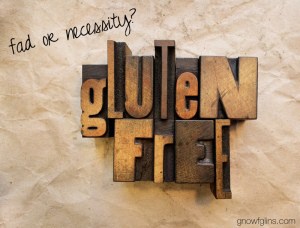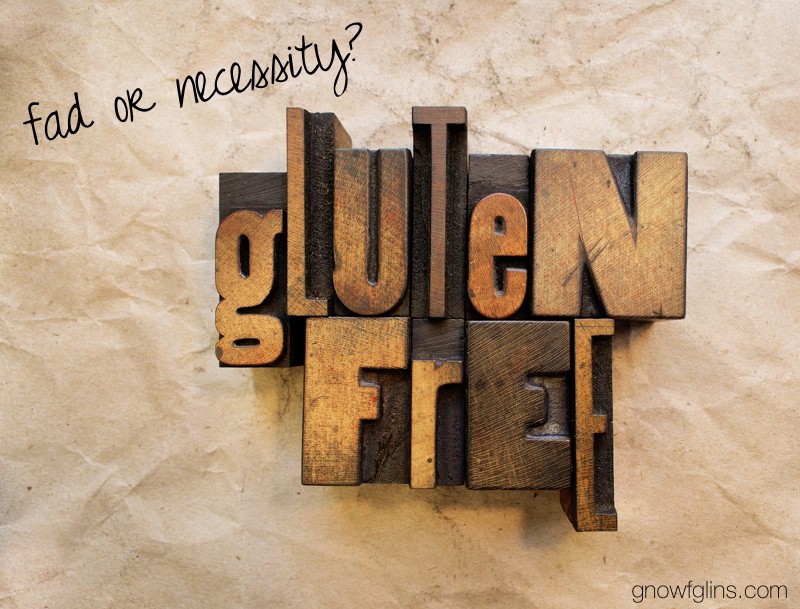
A few years ago I followed my daughter and her friend around the grocery store (they were in 3rd grade) as they picked out the dinner and snacks they wanted to accompany their slumber party festivities. I heard one say, “so can you eat gluten, because if not, these gluten-free pretzels are great.” The other replied, “I used to not eat it but I eat it sometimes now and feel ok. What about you and dairy? Are you eating it?” I smirked at them discussing their restrictions and preferences to gluten and dairy as I would have discussed what Hostess product I was into at that age and why. “Gluten-free” is, at this point, a household term. But the yo-yo seems to be swinging back from all-gluten-free-all-the-time to articles insisting it’s just a farse and fad, or even that gluten is good and necessary.
You can find articles and research supporting every stance, which solidifies the notion that nutrition and diet will always come down to you discovering what is best for you. “6 Reasons Why Gluten May be Bad For You” is among articles, with corresponding scientific studies, providing information about why going gluten-free may still be something to consider. According to studies the article links to, celiac disease is on the rise and most people remain undiagnosed. One study found over 80% of people with celiac disease are unaware they have it. If not allergic, many people may be sensitive to gluten, experiencing unpleasant consequences without knowing the cause. The article cites a study showing 40% of people carry genes found to make them susceptible to gluten sensitivity. It also states some cases of Irritable Bowel Syndrome (IBS) may be either caused or exacerbated by gluten, and that gluten has also been linked to neurological illness. In a study of patients with a neurological illness of an unknown cause, 57% of them had antibodies against gluten in their blood. Schizophrenia, epilepsy, and autism are all neurological conditions that have, through research, responded well to gluten-free diets.
And then there’s this: “Though far from having a proven scientific correlation, gluten may be addictive. When gluten is broken down in a test tube, the peptides that are formed can activate opioid receptors (41). These peptides (small proteins) are called gluten exorphins. Exorphin = peptide that is not formed in the body, that can activate opioid receptors in the brain. Given that gluten may cause increased permeability in the intestine (at least in celiac patients), some believe that these exorphins can find their way into the bloodstream, then reaching the brain and causing addiction.”
The article concludes stating many studies have found strong statistical associations between gluten, celiac disease and various other autoimmune diseases, including Hashimotos Thyroiditis, Type 1 Diabetes, Multiple sclerosis and various others.


